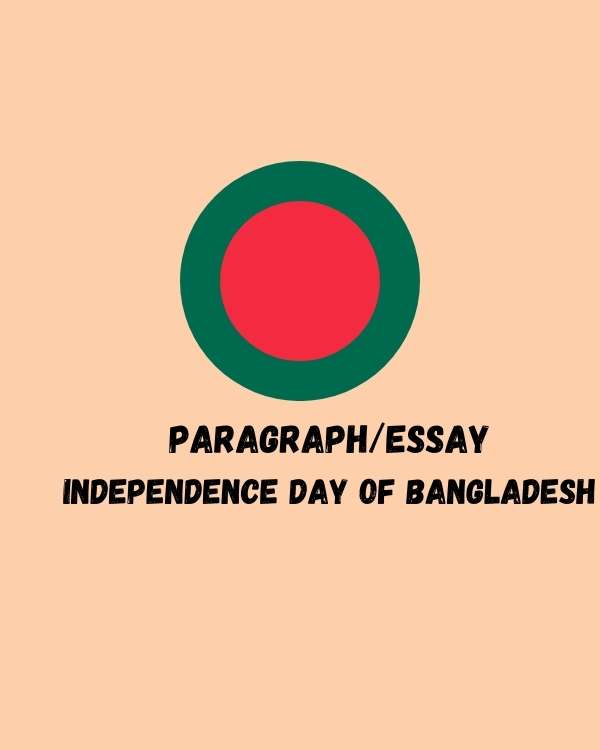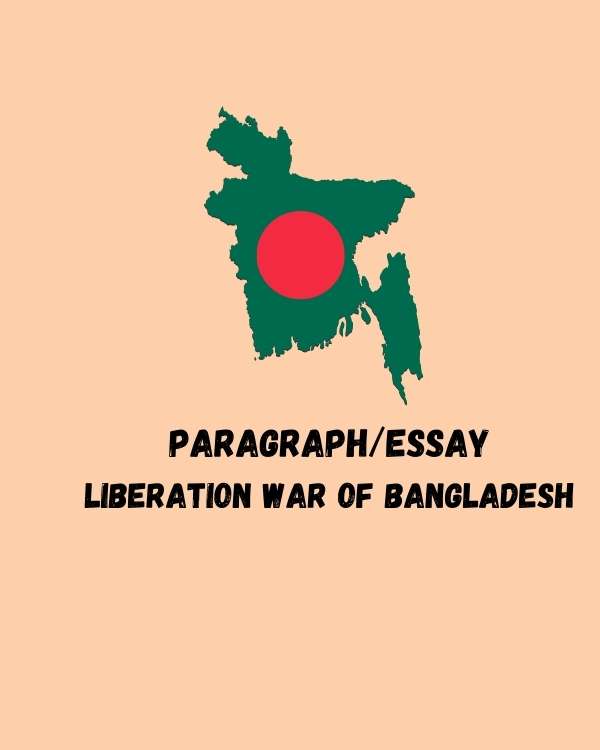Liberation War of Bangladesh 1971 : Paragraph and Composition for Students
-

- Abdul Aouwal
- June 12, 2024
- 3 min Read
- 0 comments
The Liberation War of Bangladesh in 1971 is a significant event in the history of Bangladesh. It marks the country's struggle for independence and freedom. Understanding this historical event is important for students. The following essay on the Liberation War of Bangladesh is suitable for students in classes 5 to 10. It explains the causes, events, and outcomes of the war. By reading this essay, students will learn about the bravery and sacrifice of the people who fought for their country's independence.
Liberation War of Bangladesh Paragraph ( 10 Lines)
The war of independence is a glorious period in the history of our country. The war was fought against the Pakistan army in 1971. Through this war, Bangladesh emerged as an independent country. It was also a war of supreme sacrifice. About three million people died in this war, Most of them died in the genocide carried out by the Pakistani army. On March 25, the army launched a massive attack in which there were heavy casualties. Bangabandhu Sheikh Mujib was arrested and flown to West Pakistan. Before that, he declared the independence of Bangladesh. Most of the Awami League leaders fled and set up a government-in-exile in Calcutta, declaring Bangladesh an independent state. Internal resistance was mobilized by some Bengali units of the regular army, notably by Major Zia ur-Rahman. Eventually, on Dec. 3, 1971, the Indian army invaded the territory of its neighbor. The Pakistani army surrendered on December 16. Bangabandhu Sheikh Mujibur Rahman was released from jail and returned to a hero's welcome, assuming leadership of the new Bangladesh government in January 1972. Our victory in the war of independence was a hard-earned one. We should not let this great achievement go in vain.
Liberation War of Bangladesh 1971 Composition
Introduction: The war of independence is a glorious period in the history of our country. The war was fought against the Pakistan army in 1971. Through this war Bangladesh independent country. It was also a war of supreme sacrifice. About three million people died in this war. Most of them died in the genocide carried out by the Pakistani army.
Historical Background:
The boundaries of East Pakistan, which later became Bangladesh, were determined by Sir Cyril Radcliffe, chairman of the Boundary Commission of the British regime. The two parts of Pakistan- East Pakistan and West Pakistan were far away from each other. From the beginning, the link between the two parts of Pakistan was tenuous. Their only common interest was fear of Indian domination. Jinnah and his advisers believed that unification might be achieved through a common language, Urdu. The Bengalis perceived (47574 Posted; 09108 করে) this as a threat. The other major grievance of Bengalis was that their export products, jute, and tea, provided most of Pakistan's foreign exchange but the central government stimulated development mainly in the West. , The Bengalis began to feel that they had no real power in Pakistan. In 1956 Pakistan, at last, obtained a proper constitution in which both wings were equally represented So far prime ministers had come and gone. Suhrawardy took office in September 1956 with a motley group of supporters. The government lasted only one year. In 1958, the army took over the government.
Under the military the elite civil servants assumed great importance, which adversely affected the East wing. In 1947 there had been only one Bengali Muslim in the Indian Civil Service , whereas the West wing had produced about 40. Although recruitment policy was designed to diminish the difference, by 1960 only about one third of the personnel in the Civil Service of Pakistan (successor to the ICS) were Bengalis, with none in senior positions.
Bengali discontent festered, finding a spokesman in Mujibur Rahman (known as Sheikh Mujib). Mujib was one of the founders of the Awami League in 1949 and, after Suhrawardy's death, became its leading figure. Jailed repeatedly by the military, he acquired an aura of martyrdom. He announced a six-point demand for autonomy. When in December 1970 President Yahya Khan ordered elections, the Awami League won 167 of the 169 seats allotted to East Pakistan, or Bangladesh as it was now popularly called, in the National Assembly. This gave the League an overall majority in a chamber of 313 members. In West Pakistan, however, the Pakistan People's Party, led by Zulfikar Ali Bhutto, won 81 of 144 seats; Bhutto saw himself as Mujib's rival.







0 Comments